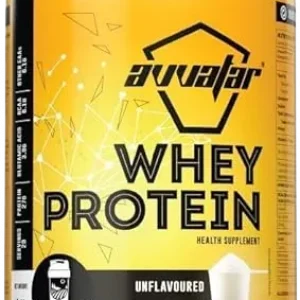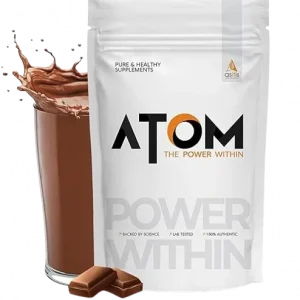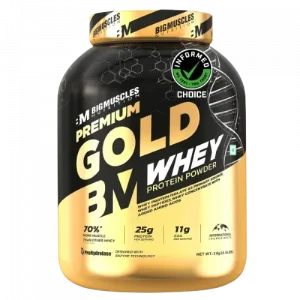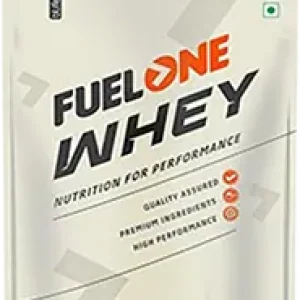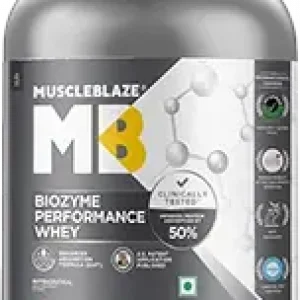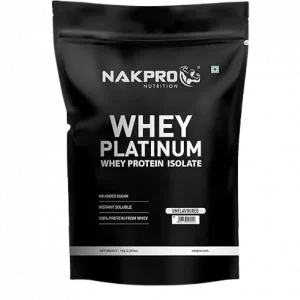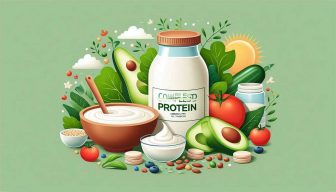Concentrate, isolate, and hydrolysate – you may have heard these terms thrown around in the world of fitness and nutrition, but do you know what they mean and how they differ? In this article, we will investigate the intricacies of the different types of whey protein to help you decide which one is best suited for your fitness goals and dietary needs. So grab a protein shake and let’s get started!
The Basics of Whey Protein
What is Whey Protein?
One of the most popular supplements in the fitness world, whey protein is a mixture of proteins isolated from whey, the liquid part of milk that separates during cheese production. It is a complete, high-quality protein containing all the amino acids your body needs. Whey protein is quickly digested and absorbed, making it an excellent choice for post-workout recovery.
Benefits of Whey Protein
One of the key benefits of whey protein is its ability to promote muscle growth and maintenance. It provides your muscles with the necessary amino acids to repair and rebuild after a workout, helping you achieve your fitness goals more effectively. Additionally, whey protein can help you feel full and satisfied, making it a great option for weight management. Incorporating whey protein into your diet can also help support a healthy immune system and boost your overall well-being.
The next time you reach for a protein supplement, consider the many benefits of whey protein. Whether you are looking to enhance your workout results, manage your weight, or support your overall health, whey protein is a versatile supplement that can help you reach your fitness goals more efficiently.
Whey Protein Concentrate
Protein concentrates are created by filtering out the non-protein components of whey, resulting in a product that is about 70-80% protein. During the production process, whey protein concentrate is typically heated and dried to create a powdered form that is easy to mix into beverages or food.
Protein Content and Quality
Protein content in whey protein concentrate can vary depending on the quality and type of processing used. It contains a good amount of vital amino acids that your body needs for muscle recovery and growth. Whey protein concentrate is a great source of high-quality protein that can help you meet your daily protein requirements.
For instance, if you are looking to increase your protein intake to support your fitness goals, whey protein concentrate can be a convenient and effective option to incorporate into your diet.
Advantages and Disadvantages of Whey Protein
Whey Protein Isolate
One of the types of whey protein available is Whey Protein Isolate. This type of whey protein is processed further than whey protein concentrate to remove more fat and lactose, resulting in a product that is about 90% or more protein by weight.
Higher Protein Content and Purity
For those looking for a protein powder with higher protein content and purity, Whey Protein Isolate is an excellent choice. It contains very little fat and lactose, making it a suitable option for individuals who are lactose intolerant or looking to reduce their fat intake.
Isolate protein powders often dissolve and get absorbed more quickly in your body compared to whey protein concentrate, which can be beneficial when you need a fast protein source, such as post-workout.
Advantages and Disadvantages of Whey Protein Isolate
Whey Protein Hydrolysate
All whey protein hydrolysate is a form of whey protein that has undergone partial hydrolysis, which means it has been pre-digested into smaller peptides and amino acids for faster absorption in the body. This process involves using enzymes or heat to break down the protein bonds. The result is a protein powder that is easier for your body to digest and absorb quickly.
Faster Absorption and Bioavailability
The whey protein hydrolysate’s pre-digested nature allows it to be absorbed more rapidly into your bloodstream compared to whey protein concentrate and isolate. The rapid absorption rate means that the amino acids are available for your muscles to use almost immediately after consumption, making it an excellent option for post-workout recovery. The process of hydrolyzing the protein also increases the bioavailability of the amino acids, meaning your body can utilize them more effectively for muscle protein synthesis and repair. Understanding the benefits of whey protein hydrolysate can help you choose the best option for your specific needs and goals. Whether you are looking to maximize muscle recovery after intense workouts or improve your overall protein absorption, whey protein hydrolysate offers a convenient and effective solution.
Advantages and Disadvantages Hydrolysate Whey Protein
Comparison of Whey Protein Types
Unlike other sources of protein, whey protein comes in three main forms: concentrate, isolate, and hydrolysate. Each type has its unique benefits and uses, depending on your fitness goals and dietary preferences. It is necessary to understand the differences between these types to choose the one that best suits your needs.
Whey Protein Concentrate vs. Isolate
| Aspect | Whey Protein Concentrate | Whey Protein Isolate |
|---|---|---|
| Bioactive Compounds | Contains more bioactive compounds | Contains fewer bioactive compounds |
| Protein Content | Lower protein per serving | More protein per serving |
| Lactose and Fat Content | Higher in lactose and fat | Lower in lactose and fat |
| Cost | More affordable | Higher cost |
| Digestion Rate | Slower digestion rate | Faster absorption into the body |
Isolate vs. Hydrolysate
For those looking for the purest form of whey protein, isolates are the way to go. Isolates contain a higher protein percentage by weight compared to concentrates, as they undergo further processing to remove more fats and carbohydrates. On the other hand, hydrolysates are predigested, making them the fastest-absorbing form of whey protein available. This makes them an excellent choice for post-workout recovery when your muscles need immediate nourishment.
Protein types like isolates and hydrolysates are known for their fast absorption rates, making them ideal for individuals with lactose intolerance or those looking to avoid digestive discomfort commonly associated with whey protein concentrates. Additionally, hydrolysates are partially broken down proteins, which can make them easier for some people to digest.
| Aspect | Whey Protein Isolate | Whey Protein Hydrolysate |
|---|---|---|
| Purity | Partially broken-down proteins | Predigested form of whey protein |
| Protein Content | Higher protein percentage by weight | High protein content |
| Processing | Further processed to remove more fats and carbohydrates | Partially broken down proteins |
| Absorption Rate | Fast | Fastest-absorbing form |
| Best Use | General protein supplementation | Post-workout recovery |
| Digestibility | Good for lactose-intolerant individuals | Easiest to digest, good for those with digestive sensitivities |
| Suitability | Ideal for those seeking pure protein with minimal fats and carbs | Excellent for immediate muscle nourishment |
Concentrate vs. Hydrolysate
Any fitness enthusiast knows that protein is necessary for muscle repair and growth. Whey protein concentrates are a good all-around option, offering a balance of protein and bioactive compounds. On the other hand, hydrolysates are ideal for those looking for a fast-digesting protein source without the added lactose or fats found in concentrates. The choice between the two ultimately depends on your fitness goals and dietary restrictions.
| Aspect | Whey Protein Concentrate | Whey Protein Hydrolysate |
|---|---|---|
| Protein Content | Good balance of protein | High protein content |
| Bioactive Compounds | Contains beneficial bioactive compounds | May have fewer bioactive compounds due to processing |
| Digestion Speed | Moderate digestion speed | Fast-digesting |
| Lactose Content | Contains lactose | Little to no lactose |
| Fat Content | Contains some fats | Little to no fats |
| Ideal For | General fitness and muscle maintenance | Rapid muscle recovery and growth |
| Dietary Considerations | May not suit lactose-intolerant individuals | Suitable for those with lactose sensitivity |
| Best Use | All-around option for most users | Ideal for post-workout or when fast absorption is needed |
| Cost | Generally more affordable | Typically more expensive |
Choosing the Right Whey Protein for You
Once again, when it comes to selecting the right whey protein for your needs, there are a few key factors to consider. Your choice should be based on your fitness goals and needs, your budget and value preferences, as well as your personal preferences.
Fitness Goals and Needs
The type of whey protein you choose should align with your fitness goals and needs. If you are looking to build and repair muscles after intense workouts, a whey protein isolate or hydrolysate may be more suitable due to its higher protein content and faster absorption rates. On the other hand, if you are looking for a more cost-effective option and are not as concerned with higher protein content, a whey protein concentrate could be a good choice.
Budget and Value
For many people, budget plays a significant role in their whey protein selection. Whey protein concentrates are usually the most budget-friendly option, making them ideal for those looking for a cost-effective protein supplement. However, if you have a bit more flexibility in your budget and prioritize higher protein content and faster absorption, investing in whey protein isolate or hydrolysate may be worth the extra cost.
It’s important to note that while whey protein concentrates are more economical, they may contain slightly higher levels of fats and carbohydrates due to the processing methods. This is something to consider if you are closely monitoring your macronutrient intake.
Personal Preferences
Choosing the right whey protein also comes down to personal preferences. Some people prefer the taste and texture of one type of whey protein over another, while others may have dietary restrictions that limit their options. Consider factors like flavor, mixability, and any allergies or sensitivities you may have when making your decision.
Plus, if you are someone who enjoys experimenting with different flavors and recipes, you might want to opt for a whey protein that comes in a variety of flavors to keep your taste buds satisfied.
Final Words
With this in mind, it is evident that whey protein comes in various forms, each with its unique characteristics and benefits. Concentrate, isolate, and hydrolysate cater to different needs and preferences, whether you are looking for a budget-friendly option, a higher protein content, or a more easily digestible form. Understanding these distinctions allows you to make an informed decision on which type of whey protein best suits your fitness goals and dietary requirements. Remember to always consult with a healthcare professional or nutritionist before making any significant changes to your diet or workout routine.

